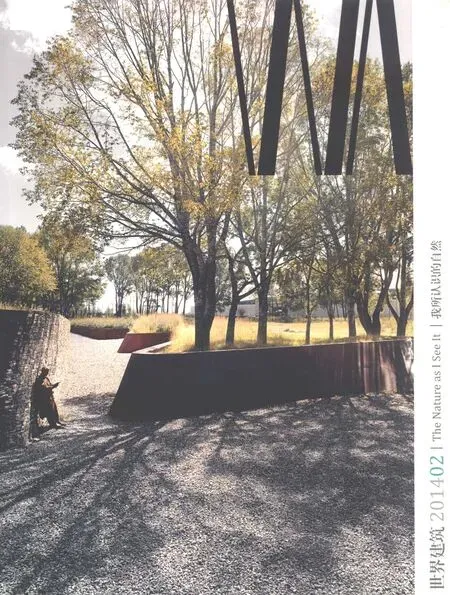篇首语
篇首语
《世界建筑》的读者朋友:
本期《世界建筑》的主题是“我所认识的自然”。
一部人类文明发展史,实际上是一部人与神、人与人、以及人与自然之间的关系史。
对于现代世界来讲,人类如何认识和处理与自然之间的关系,严重影响人类的生存前景、生活质量、生产安全和生态和谐。因此,自1960年代以来,许多全球性的重大事件和热点话题都和“自然”有关:可持续发展、资源危机、土地沙漠化、核泄露、物种灭绝、全球气候变暖、低碳、绿色产业……
对于今天的中国人来讲,“自然”更是一个沉重而奢侈的字眼。沉重,是因为我们可能是世界上环境污染最严重的国家,而且这个“最严重”还在向着“更严重”的方向发展;奢侈,是由于当雾霾蔽日、垃圾围城、毒地蔓延、死猪塞河等环境事件日益普遍的时候,晴朗的天空、清新的空气、干净的水源和安全的食品已经不再是我们取之不竭的“日用品”,而逐渐成为正在远去的“奢侈品”。
对于建筑学、城乡规划学、风景园林学这3个人居环境科学的支柱性学科而言,上述国际、国内趋势既是一种挑战,更是一种机遇。如何更为深刻和全面地理解“自然”的含义和意义,如何更为有效地掌握大气圈、水圈、生物圈、土壤圈和岩石圈的最新科学成果,如何在建筑设计、城乡规划和景观规划设计中“真正”充分地考虑气候特点、水文状况、土壤条件、植被特征和动物栖息,如何实现人类和生态共同价值的最大化,或许应该成为每个人居环境科学研究者和实践者的基本功。否则,“绿色建筑”、“生态城市”、“景观都市主义”等美好的概念只会是梦中花、水中月,只会是规划设计师们无意识地欺骗自己、进而欺骗社会的美丽“谎言”。

杨锐
清华大学建筑学院景观学系教授,系主任
Dear reader,
The theme of this issue of World Architecture is "the nature as I see it".
The history of civilization represents the history of humankind's relationships with God, with other humans, and with nature.
In the modern world, the way through which we as humans recognize and handle our relationship with nature significantly affects the prospects of our continued existence, living quality, product safety, as well as ecological harmony. Therefore, since the 1960s, many major global events and popular public discourse have been associated with human's relationship with nature, such as sustainable development, declining resources, desertification, nuclear accidents, species extinction, global warming, low-carbon practices, and green industry.
For today's Chinese people, "nature" is now a rather heavy and luxurious word. Nature is heavy, because at present, China may just be the most heavily polluted country in the world. This "heavily polluted" country is quickly becoming "even more heavily polluted". Today, nature is a luxury, because a clear sky, clean air, clean drinking water, and safe food are no longer inexhaustible "commodities". When environmental pollution such as severe smog, accumulation of waste, toxic land, and dead pigs in the river are increasingly prevalent, nature gradually becomes "luxury goods".
For the three major disciplines of the human settlement sciences (architecture, urban planning, and landscape architecture), the above-mentioned international and domestic trends present both challenges and opportunities. How can one more profoundly and comprehensively understand the meaning and significance of "nature"? How can one effectively interpret the latest scientific research on the atmosphere, the hydrosphere, the biosphere, the pedosphere and the lithosphere? How can one truly take into account natural factors such as climate, hydrology, soil conditions, vegetation, and animal habitat during the process of architectural design, urban planning and landscape architecture? Perhaps knowing how to maximize the common values between human development and ecology should be within the skill set of every researcher and practitioner of the human settlement sciences. Otherwise, wonderful ideas such as "green architecture", "eco-cities" and "landscape urbanism" will remain as illusions for most, just as flowers in a dream or the moon in the water. These ideas will become beautiful "lies" through which planners unconsciously deceive themselves and thus deceive society.

YANG Rui
Professor, Chair of Department of Landscape, School of Architecture, Tsinghua University

